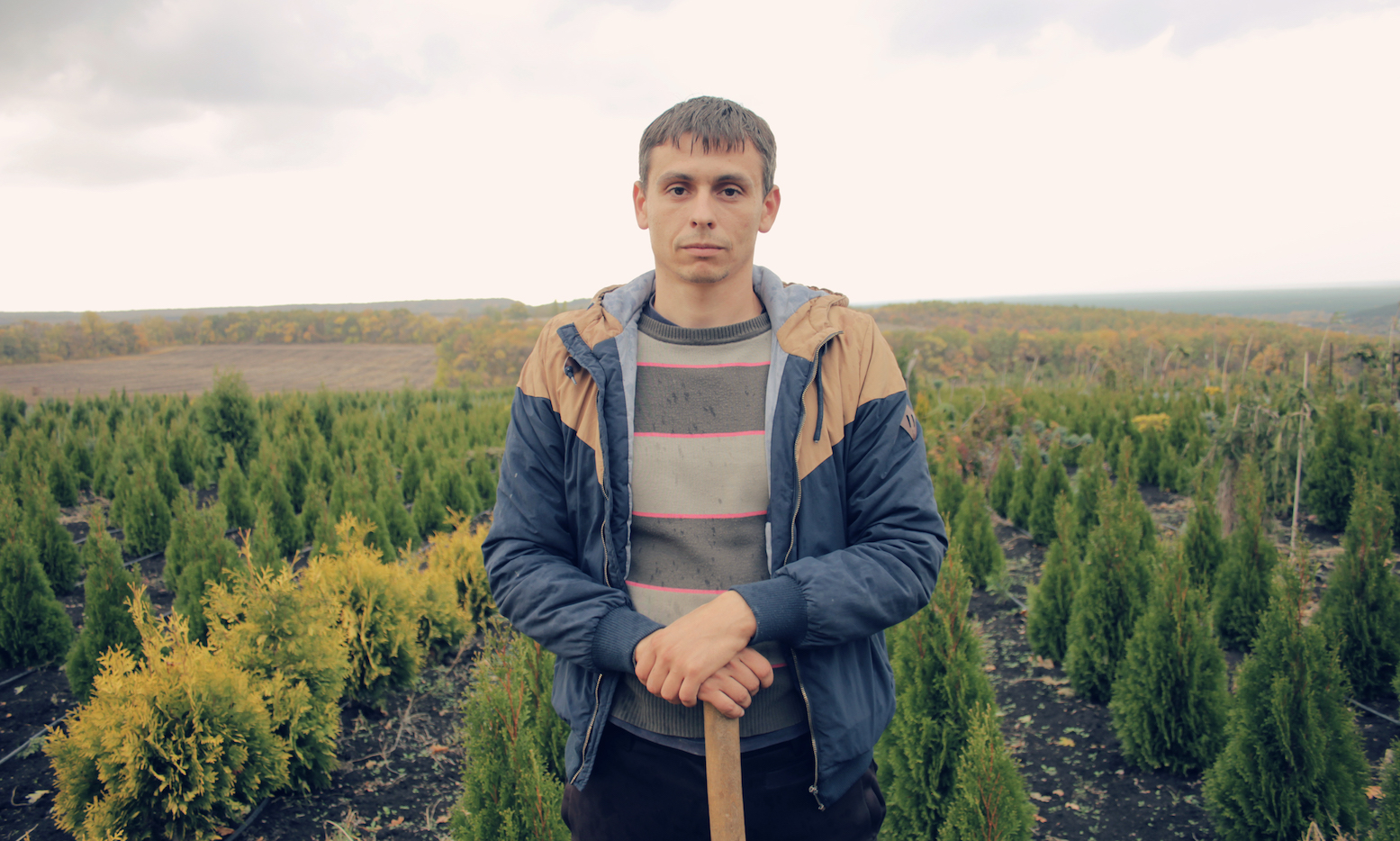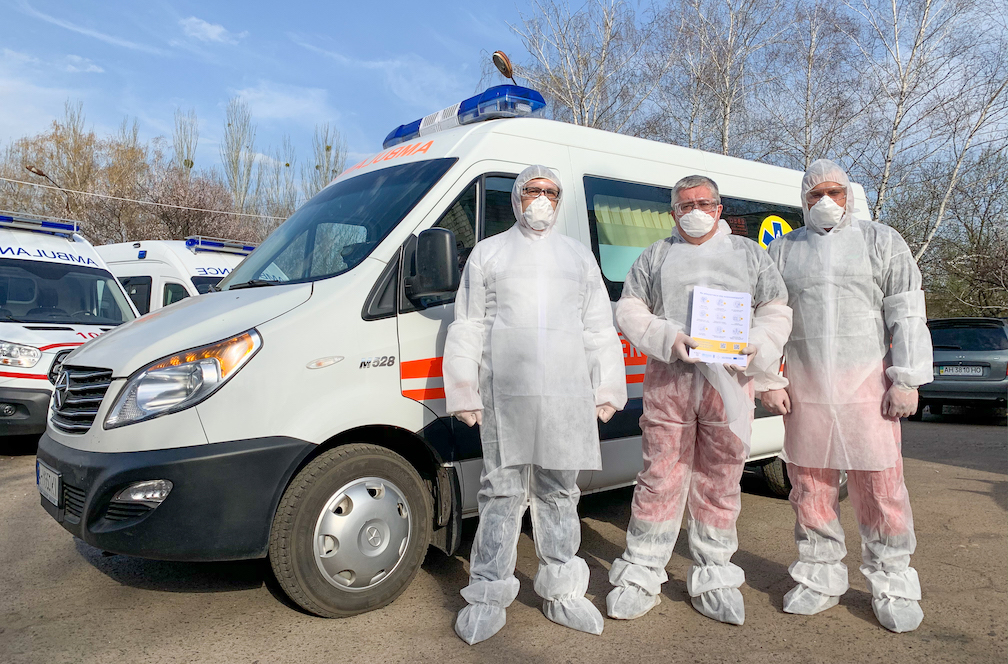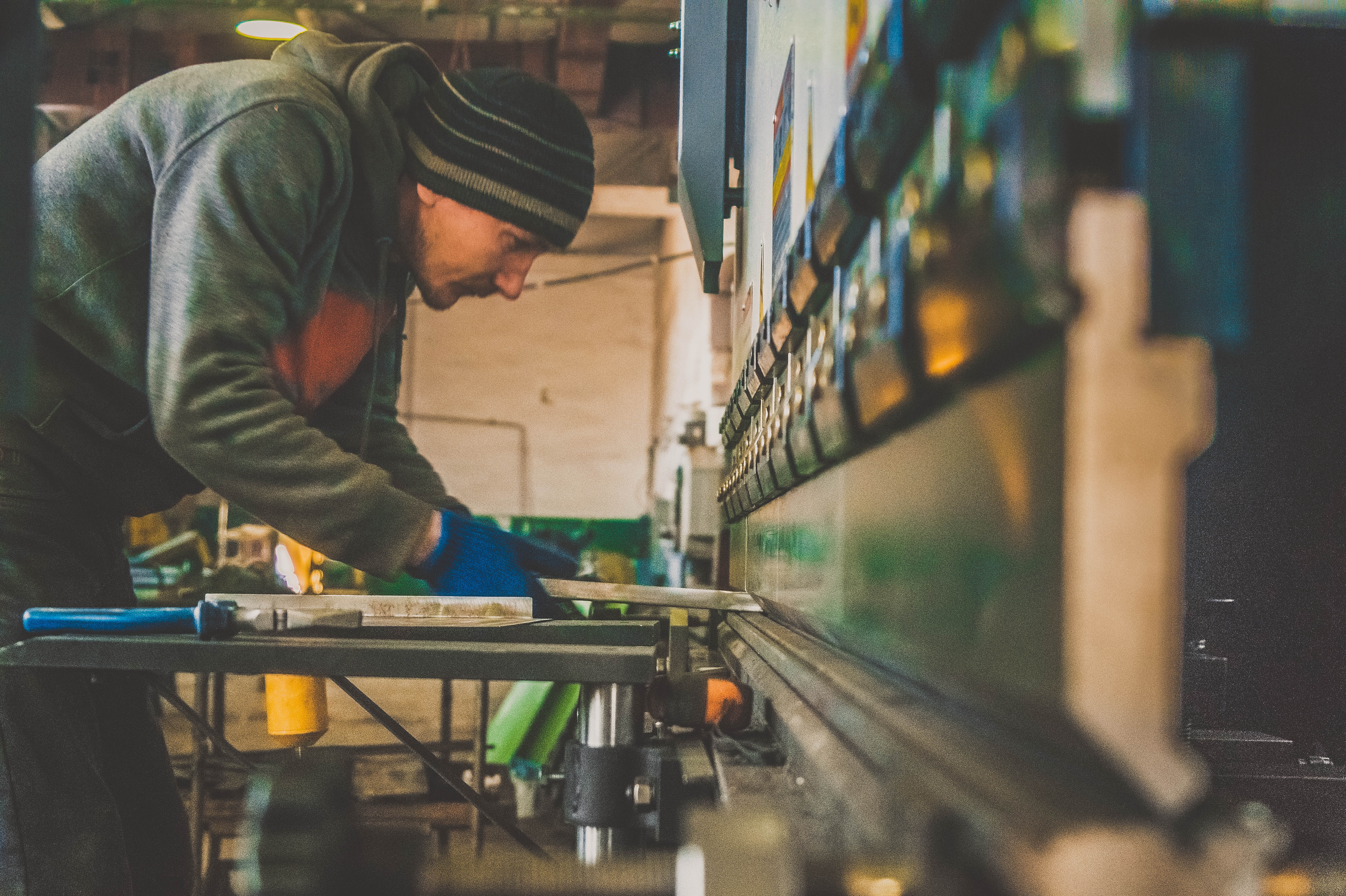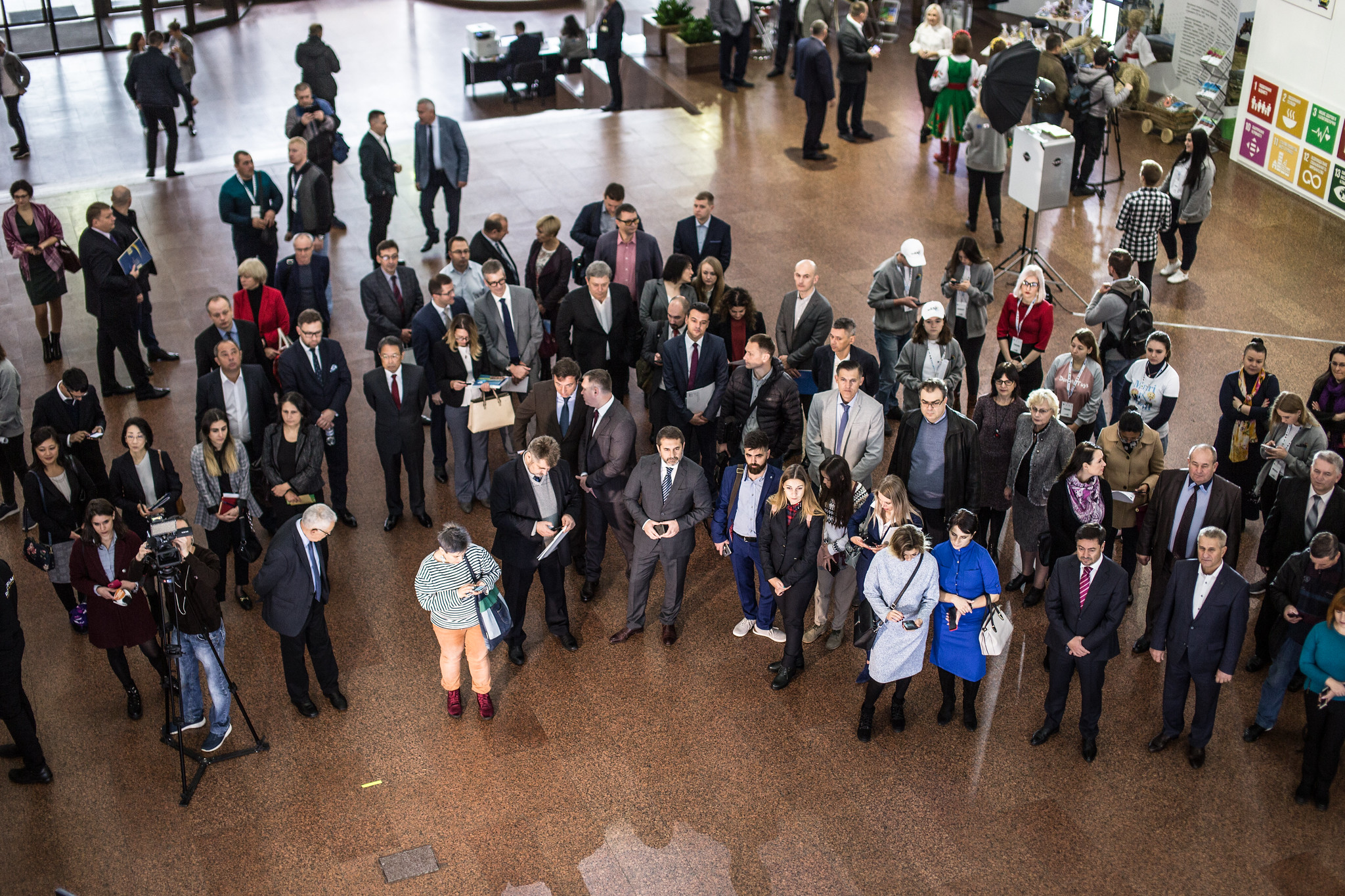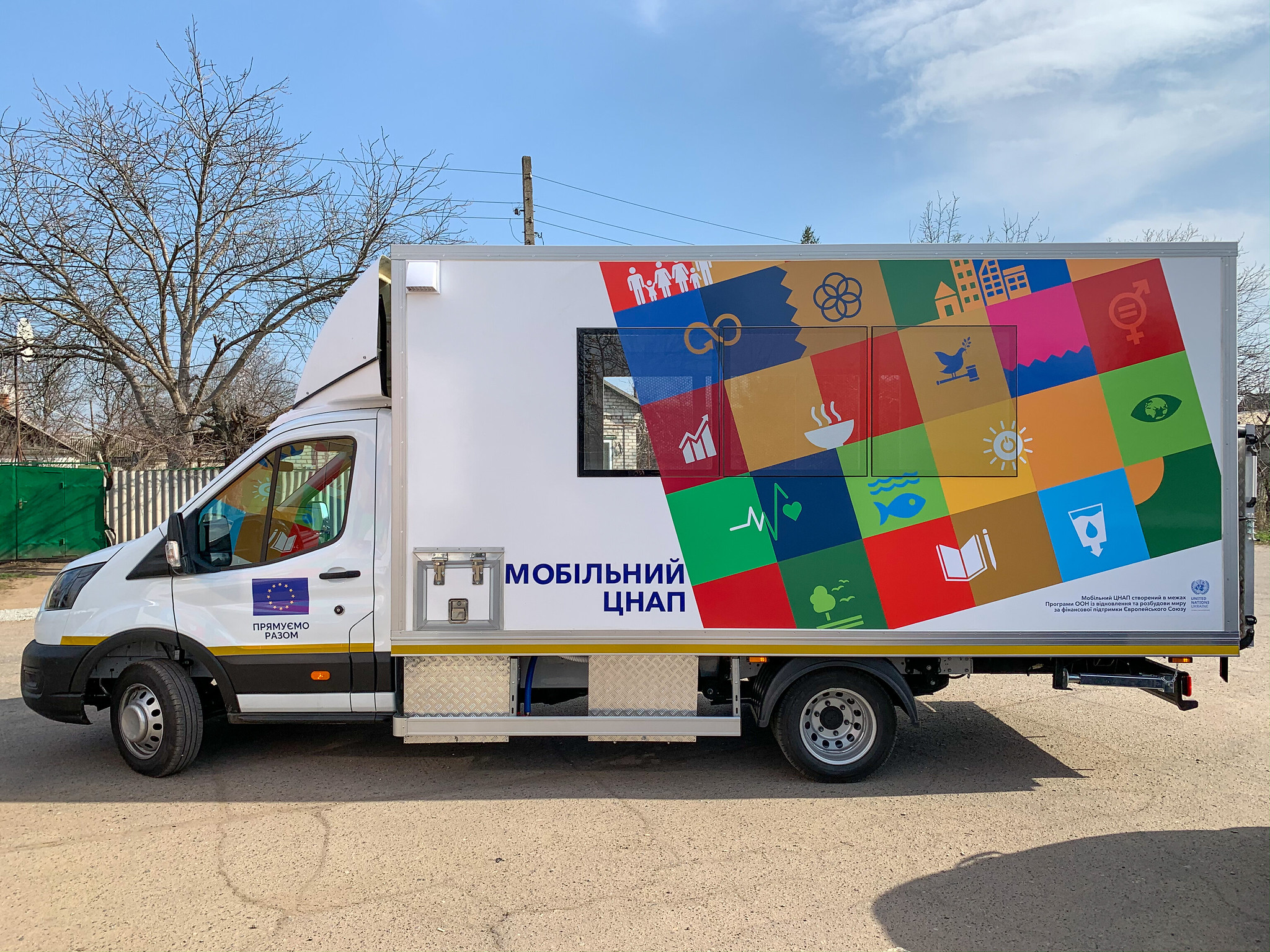Landscape designer Illya Lazarenko, from Sloviansk, was part of a UNDP Ukraine programme to support small- and medium-enterprises in eastern Ukraine. Photos: UNDP Ukraine
While the coronavirus (COVID-19) pandemic now affects practically every country, prompt action by the government in Ukraine gives hope that the outbreak here will be more limited in scope than in other parts of Europe.
Unfortunately, Ukraine is also still coping with the lingering effects of six years of conflict in the east of the country. Two thirds of the estimated 6.6 million residents in Donetsk and Luhansk oblasts have been directly affected by the conflict, ongoing from 2014. Over 1.4 million people have since been registered as displaced, and have had to re-build their livelihoods and moved into new communities and homes.
The pandemic accentuates the effects of this conflict in a number of ways.
First, it puts unwelcome extra strain on the region’s health system, which has long suffered from underinvestment in both infrastructure and personnel. People in the region have had a low quality of access to healthcare services and limited access to specialized treatment and care. Large inflows of internally displaced have stretched the already scarce resources, and the forced relocation of hospitals has rendered significant medical equipment and facilities inaccessible to many.
Second, the quarantine restrictions put in place by the government have serious socio-economic effects, restricting people’s movement and leaving many without work. Persistent ceasefire violations and related trade boycotts exacerbated pressure on production and services in Donetsk and Luhansk oblasts, which were hit disproportionately hard by the recent years of economic crisis. A large part of the heavy industry and extractive infrastructure was significantly affected, wiping out much of the local economic activity. Proposed solutions, such as the creation of small- and medium-enterprises, were just starting to take hold.
On top of that, the region is undergoing the complex reform process of decentralisation, and the local authorities are trying to cover many existing governance gaps with scarce resources. For many residents, access to social and legal services has been a challenge.
Against the background of the ongoing conflict, the pandemic is also now challenging the fledgling trust and social cohesion among the affected population. The conflict has given rise to tensions between the displaced and some host communities, while weakening trust and security.
Not starting from scratch
It is heartening, however, that in responding to the spread of the novel Coronavirus, we at UNDP Ukraine are not starting from scratch.
Through the UN Recovery and Peacebuilding Programme (UN RPP), we’ve been working with our partner agencies to build peace, social cohesion and resilience in the most affected communities in the east of the country, now being further affected by the pandemic.
Medical workers from the Emergency Medical Care Centre of Donetsk Oblast in Kramatorsk, Ukraine.
1) Health: Since 2015, we have been procuring vitally needed medicines and medical equipment on behalf of the Ukrainian government. And through the Early Recovery Programme, funded by the European Investment Bank, UNDP has overseen projects to overhaul hospitals and health clinics in the east of the country.
The resources of the already underequipped health sector are now under severe strain. As an immediate response, UNDP is spending over US$200,000 on buying PPEs and other medical supplies for hospitals in the east, supporting the medical personnel who are on the front lines of the fight against the virus.
A man works on grain-cleaning equipment as part of UNDP's support to small businesses in eastern Ukraine.
East Expo 2019 brought together entrepreneurs from Donetsk, Luhansk and Zaporizhzhia oblasts and national business owners.
2) Economy and  jobs: Between 2016 and 2020, we already got over 800 local businesses standing firmly on their feet, providing them with funds, skills, access to markets and exposure to best practices and business contacts, both in Ukraine and abroad. This has resulted in the rebirth of many value chains, but more importantly in the creation of almost 4,000 jobs in the east, where unemployment has long been a scourge.
jobs: Between 2016 and 2020, we already got over 800 local businesses standing firmly on their feet, providing them with funds, skills, access to markets and exposure to best practices and business contacts, both in Ukraine and abroad. This has resulted in the rebirth of many value chains, but more importantly in the creation of almost 4,000 jobs in the east, where unemployment has long been a scourge.
Reacting to the challenges of recent quarantines, we are working with our supported businesses, helping them to adapt by obtaining grants, opening online stores, making full use of opportunities offered by the government, and digitising their operations as much as possible. We are also working with helping the state employment services, expanding their support to those unemployed, and striving to match the skills available on the market to the needs of new businesses.
3) Governance: UNDP has also been working to strengthen the local authorities in the east, which are taking their first steps to improve the provision of government services, and thus trust in the authorities.
We’re supporting dozens of communities, whose work on their strategies, be they development, fiscal, or environmental, has not stopped but moved online. People continue to work tirelessly on planning their common future.
A growing fleet of fully equipped mobile Administrative Service Centres (ASCs) has been covering ever-greater areas in the region with the provision of services: from registering a birth, a land plot or a business, to getting support with social assistance. These ASCs are now great tools in fighting the virus: bringing services to the people, they allow for physical distancing and let vulnerable people, especially the elderly and persons with disabilities, obtain government services near or in their own homes. The mobile technologies that are being piloted under UNDP-led projects in the east are the future for covering large territories and bringing trust in the state back to its citizens.
A new Mobile Administrative Service Centres (ASCs), allowing local people to obtain vital administrative services quickly and on-site.
4) Social cohesion: Safety and security of course remain on the top of the agenda of all residents affected by the conflict. These have become ever more important during the COVID-19 crisis, as respect for human rights and personal safety could be overshadowed by the need to impose a strict quarantine. We’re providing our partner local police and emergency services with PPEs, disinfectants and sprayers, to make sure they are well protected so they can continue to do their jobs.
Meanwhile, community security working groups continue their work online: Zoom and Skype are bringing together local authorities, civil society, parents of students, and the police to discuss ways to better react to the challenges COVID-19 is posing to their communities.
With UNDP’s support, all emergency services in government-controlled areas of Donetsk and Luhansk oblasts have installed secure and reliable conference call systems and can now coordinate their efforts online. The legal aid’s coordination centre is moving its services online, continuing its efforts to support citizens, especially those who cannot travel to the closest legal aid centre.
Lastly, a grant competition will provide funds for projects created by local civil society organizations and activists to counter and alleviate the impact of COVID-19 across the conflict-affected communities. The grants are supporting community-based initiatives to assist the most vulnerable groups of people, as well as helping to mitigate the impact of the pandemic and provide psychosocial care and support.
Eastern Ukraine has already seen six years of crisis and recovery. It is regrettable that communities in the east have been hit again with a new threat, but they have demonstrated resilience in the face of adversity many times before, and will do so again. And we will be there alongside them the whole way.
UNDP is working across the region to respond to the COVID-19 crisis. Find out more about our work.

 Locations
Locations
